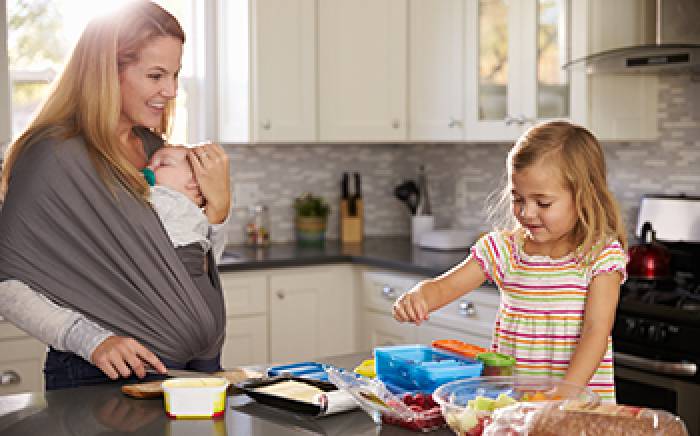Having the “talk” with your child doesn’t have to be a nerve-wracking event.
Sex—it’s spelled with three letters, but it can feel like a four letter word, especially when it’s time to talk to your children about it.
“Sex is a taboo subject for many people, and it can intimidate parents to the point that they don’t talk about it at all,” says Sarah Garwood, MD, a Washington University adolescent medicine physician at St. Louis Children’s Hospital. “This means that children are learning about it from their peers, the media or somewhere else.”
Being open, honest and positive with your child can help you shape his values regarding consent, relationships and protection in a healthy, proactive way.
“If your child comes to you with questions, be ready to drop what you’re doing and talk,” Dr. Garwood says. “If you shut her down, it may be difficult for her to come back and try again.”
The “Talk” Time line
It’s never too early to have conversations about sexual development with your child. Tailor your discussions to your child’s age so he feels comfortable talking to you.
“With young children, you may want to teach them to talk about their body parts using the correct terms instead of slang,” Dr. Garwood says. “As they become older, discuss personal boundaries and the importance of respecting others.”
Once children reach middle school, you can give them basic facts about reproduction. From there, the conversation can include more complex topics, such as sexual behavior, orientation, protection, pregnancy and gender identity. By the time your child reaches adolescence, you may be surprised how much ground you’ve already covered.
“Parents are the most important teacher of sexual values for their children,” Dr. Garwood says. “Be a proactive educator rather than a passive one.”
By teaching your children about sexual health in an ongoing conversation instead of a one-time discussion, you can help create a comfortable environment around the topic within your household. There’s no need to make plans for a lecture—the subject often comes up naturally. A question about a friend, the news or a television show can serve as a great teachable moment for you and your child.




